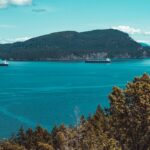The Galapagos Islands, an archipelago of volcanic islands straddling the equator in the Pacific Ocean, are known worldwide for their unique biodiversity and the role they played in Charles Darwin’s formulation of his theory of evolution. Yet, beyond their scientific significance, these islands hold a complex and intriguing history, intertwined with questions of ownership, sovereignty, and environmental stewardship. This article delves into the history of the Galapagos Islands, unraveling the threads of discovery, ownership, and conservation that have shaped their story.
Discovery of the Galapagos Islands
The Galapagos Islands were first discovered unintentionally by Fray Tomas de Berlanga, the Bishop of Panama, in 1535 when his ship was carried off course by strong currents. However, it was not until the late 16th and early 17th centuries that the islands began to be explored and mapped in earnest by European sailors and buccaneers. These early explorations revealed a land of stark beauty and strange creatures, sparking curiosity and wonder among those who visited.
The Ownership Question: Who Owns the Galapagos Islands?
Ownership of the Galapagos Islands has been a contentious issue since their discovery. However, today, the islands are recognized internationally as part of the Republic of Ecuador. Ecuador staked its claim to the islands in 1832, becoming the first country to officially assert sovereignty over the archipelago. This claim was largely uncontested, and over time, the international community came to recognize Ecuador’s ownership of the Galapagos Islands.
The Galapagos Islands and Ecuador: A Historical Perspective
Ecuador’s annexation of the Galapagos Islands in 1832 marked a significant turning point in the islands’ history. This event laid the groundwork for the development of the islands and their integration into the wider Ecuadorian state. Over the years, the relationship between Ecuador and the Galapagos Islands has been shaped by a series of key events, including the establishment of the Galapagos National Park in 1959 and the designation of the islands as a UNESCO World Heritage Site in 1978.
The Role of the Galapagos Islands in Ecuador’s Economy
The Galapagos Islands play a crucial role in Ecuador’s economy, primarily through tourism. Each year, thousands of tourists flock to the islands, drawn by their unique wildlife and pristine landscapes. This tourism industry provides a significant source of income for Ecuador, contributing to the country’s economic growth and development. Beyond tourism, the islands also contribute to the economy through fishing and scientific research.
Environmental Stewardship: The Galapagos Islands and Conservation
The Galapagos Islands are renowned for their unique biodiversity, which includes many species found nowhere else on Earth. This biodiversity has made the islands a focal point for conservation efforts, which aim to protect the islands’ unique ecosystems from threats such as invasive species, climate change, and human activity. However, these conservation efforts face significant challenges, including limited resources and the ongoing pressures of tourism and development.
The Galapagos Islands: A World Heritage Site
In 1978, the Galapagos Islands were recognized as a World Heritage Site by UNESCO, a testament to their global significance and the importance of their conservation. This status has brought increased attention and resources to the islands, aiding in their preservation. However, it also carries implications for the management of the islands, requiring a delicate balance between conservation, tourism, and local development.
International Disputes and Controversies
While Ecuador’s ownership of the Galapagos Islands is now widely accepted, the islands’ history has not been without controversy. Past disputes over ownership and sovereignty have occasionally flared up, often linked to the islands’ strategic location and rich resources. Today, debates continue over issues such as the management of tourism, the rights of the local population, and the best strategies for conserving the islands’ unique biodiversity.
The Future of the Galapagos Islands
Looking to the future, the Galapagos Islands face significant challenges. Climate change poses a major threat to the islands’ unique ecosystems, with rising temperatures and sea levels expected to have profound impacts. At the same time, the islands must navigate the challenges of sustainable development, balancing the needs of their human population with the imperative of conservation. Despite these challenges, there is reason for optimism, with ongoing conservation efforts and increasing international attention offering hope for the future of the Galapagos Islands.
Conclusion
The Galapagos Islands, with their unique biodiversity and rich history, are a treasure of global significance. Their story, marked by discovery, ownership disputes, and conservation efforts, offers a fascinating glimpse into the complexities of managing and preserving such a unique place. As we look to the future, the Galapagos Islands remind us of the importance of environmental stewardship and the need for sustainable development, lessons that hold relevance far beyond their shores.
Frequently Asked Questions
Who discovered the Galapagos Islands?
The Galapagos Islands were first discovered unintentionally by Fray Tomas de Berlanga, the Bishop of Panama, in 1535.
Who owns the Galapagos Islands?
The Galapagos Islands are owned by the Republic of Ecuador, which staked its claim to the islands in 1832.
What is the role of the Galapagos Islands in Ecuador’s economy?
The Galapagos Islands play a crucial role in Ecuador’s economy, primarily through tourism. They also contribute to the economy through fishing and scientific research.
What are the main conservation challenges in the Galapagos Islands?
The main conservation challenges in the Galapagos Islands include threats from invasive species, climate change, and human activity, as well as limited resources for conservation efforts.
What is the significance of the Galapagos Islands being a World Heritage Site?
Being a World Heritage Site brings increased attention and resources to the Galapagos Islands, aiding in their preservation. However, it also requires a delicate balance between conservation, tourism, and local development.
What are the future challenges for the Galapagos Islands?
Future challenges for the Galapagos Islands include the impacts of climate change, the need for sustainable development, and ongoing debates over tourism management and conservation strategies.
References:
- Darwin, C. (1859). On the Origin of Species. London: John Murray.
- Grant, P. R., & Grant, B. R. (2008). How and Why Species Multiply: The Radiation of Darwin’s Finches. Princeton: Princeton University Press.
- Larson, E. J. (2001). Evolution’s Workshop: God and Science on the Galapagos Islands. New York: Basic Books.
- Porter, D. (1825). Journal of a Cruise Made to the Pacific Ocean. Philadelphia: Bradford and Inskeep.
- Quammen, D. (1996). The Song of the Dodo: Island Biogeography in an Age of Extinctions. New York: Scribner.
- UNESCO. (1978). Convention Concerning the Protection of the World Cultural and Natural Heritage. Paris: UNESCO.
- Watkins, G., & Cruz, F. (2007). Galapagos at Risk: A Socioeconomic Analysis of the Situation in the Archipelago. Puerto Ayora: Charles Darwin Foundation.
- Weiner, J. (1994). The Beak of the Finch: A Story of Evolution in Our Time. New York: Knopf.
- World Wildlife Fund. (2019). Living Planet Report – 2019: Aiming Higher. Gland: WWF.
- Zimmer, C. (2001). Evolution: The Triumph of an Idea. New York: HarperCollins.








